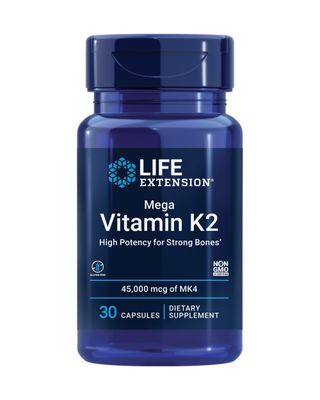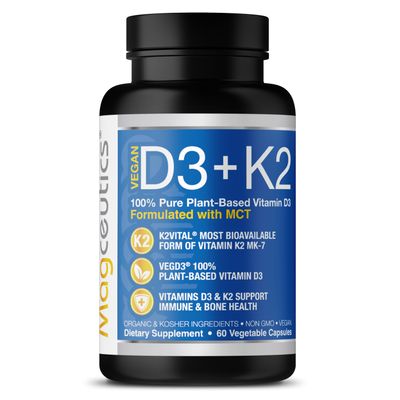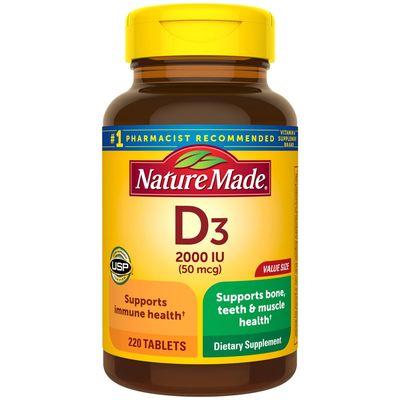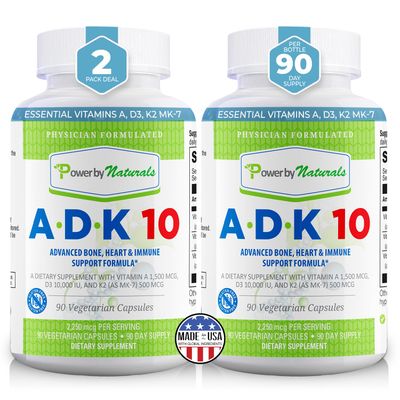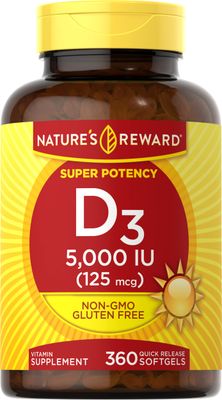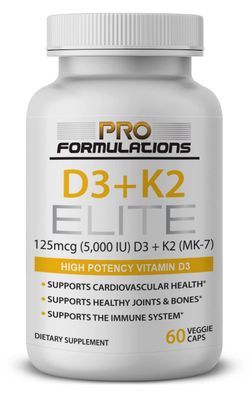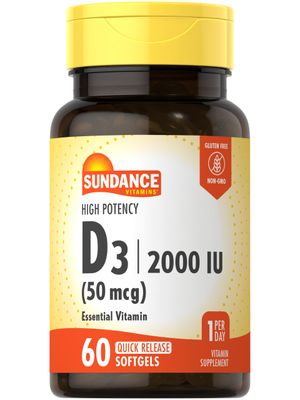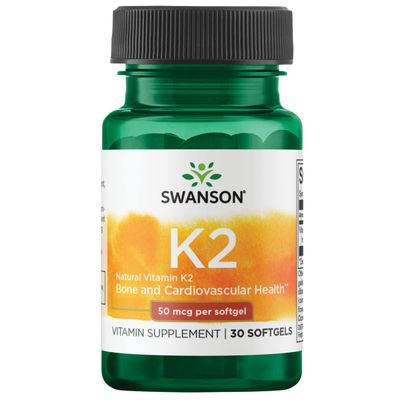Kirkman - Vitamin D3 1000 IU - 120 Capsules - Supports Immune Health - Helps Build Strong Bones - Hypoallergenic
Description
Vitamin D has many roles in the body. This nutrient is needed for bone growth and maintenance. Strong evidence suggests that it promotes calcium absorption, modulates cell growth, supports neuromuscular and immune function, and reduces inflammation. Vitamin D deficiencies cause rickets in children and osteomalacia in adults. Recently, numerous and extensive studies have been conducted regarding Vitamin D that suggest health benefits for many other serious and chronic health conditions. Studies have also found that there are widespread deficiencies in Vitamin D in populations across the globe. As a result, there have been several recent increases in the recommended daily intake of Vitamin D. Current Recommended Daily Intakes are as follows: Adults and Children 4 years and older - 20 mcg (800 IU), Infants through 12 months - 10 mcg (400 IU), Children 1 to 3 years - 15 mcg (600 IU), Pregnant and Lactating women - 15 mcg (600 IU). Relatively few foods naturally contain Vitamin D. It is best obtained from sunshine; however, the use of sunscreen can limit the amount of Vitamin D absorbed by the sun. People living in cloudy or rainy climates are also often prone to Vitamin D deficiency. Certain cod liver oils can also be a good source of Vitamin D.Vitamin D levels fluctuate in the body due to many factors. Laboratory tests can be done to establish a baseline level that physicians may use to suggest adequate dosing.*
Features
- POWERFUL VITAMIN D: Formulated with 1000 IU of Vitamin D3 to support dietary health, bone health, and the immune system.*
- STRONG BONES: Vitamin D is needed for bone growth and maintenance. Strong evidence suggests that Vitamin D supports calcium absorption, modulates cell growth, and supports neuromuscular and immune system function.*
- SAFE FOR DAILY USE: Take one capsule daily or as directed by your physician.
- ULTRA TESTED: Our Ultra Tested standards far exceed industry standards and government requirements.*
- HYPOALLERGENIC: Does not contain gluten, casein, milk, eggs, peanuts, tree nut allergens, fish allergens, shellfish, soy, wheat, and sesame.

